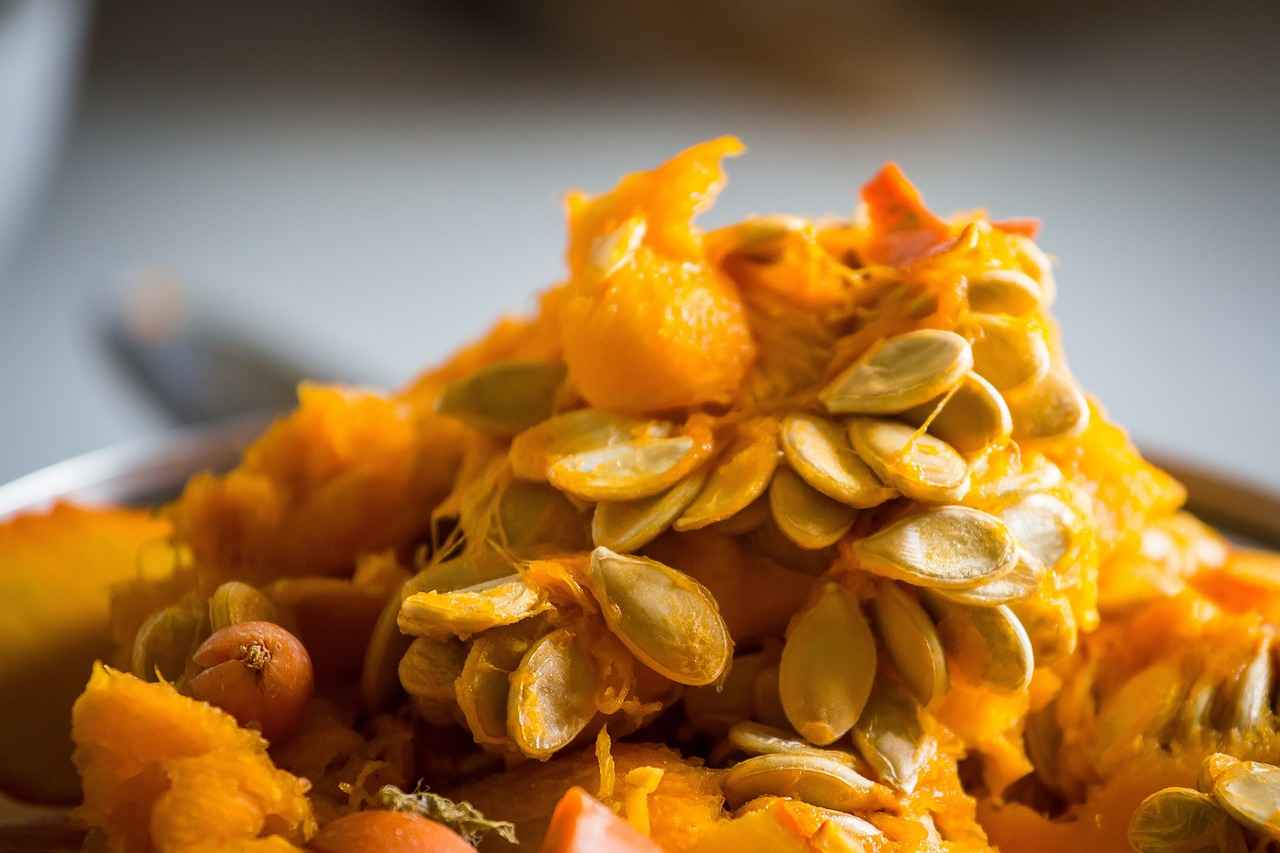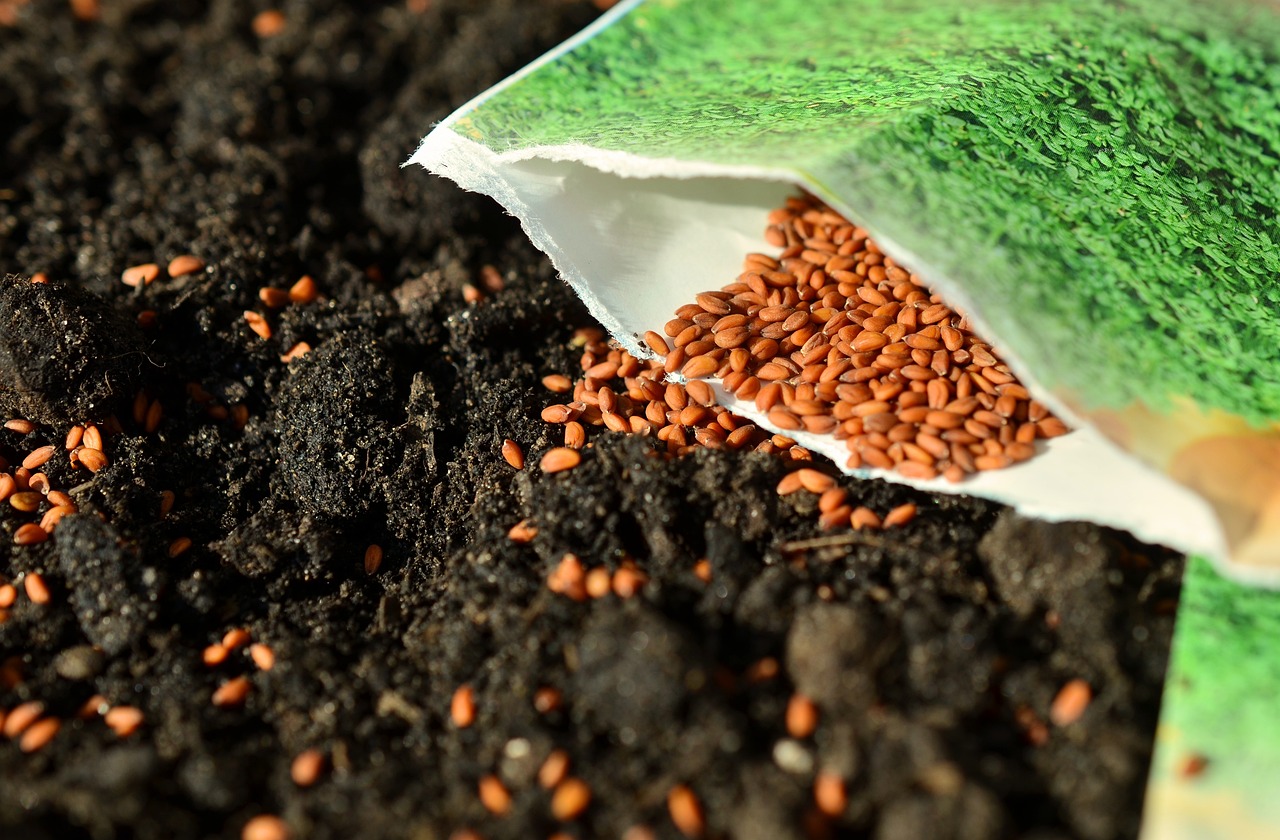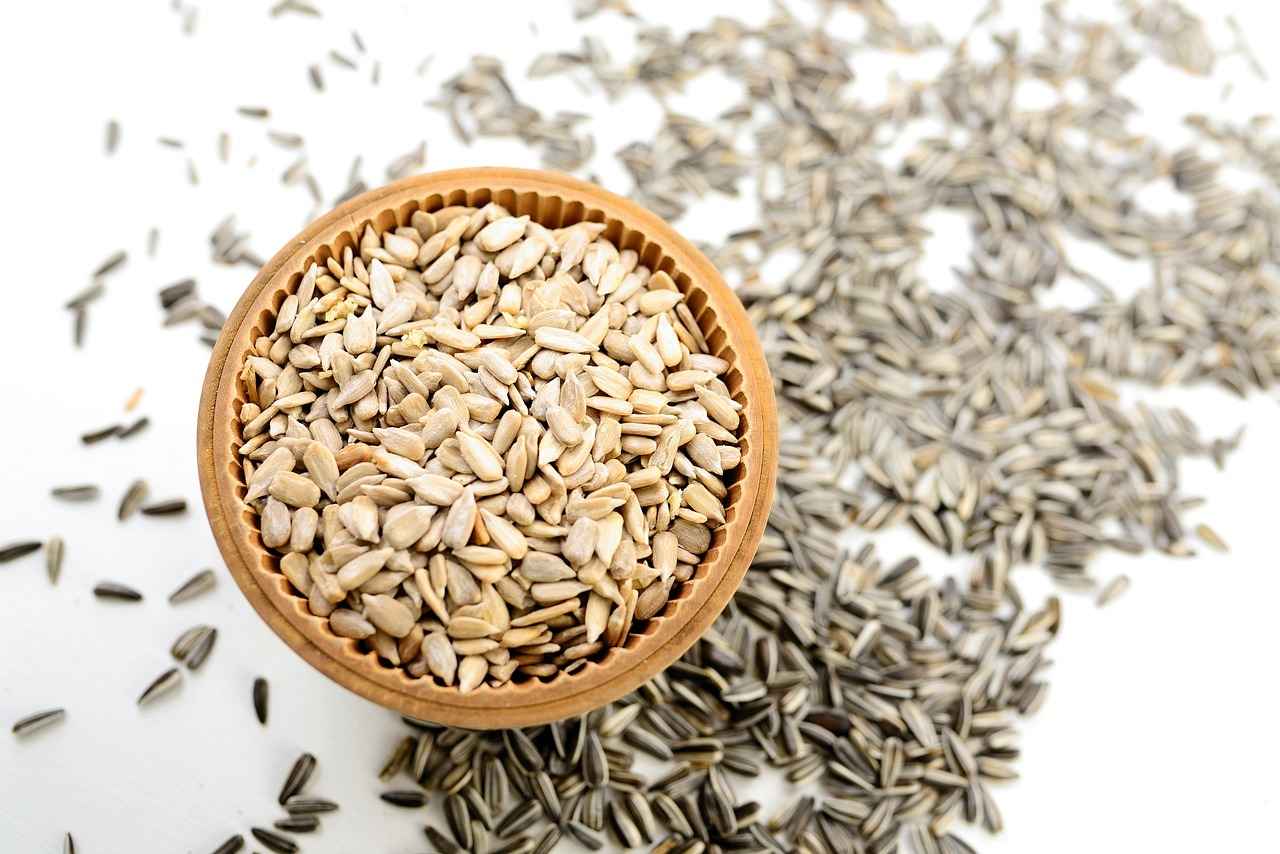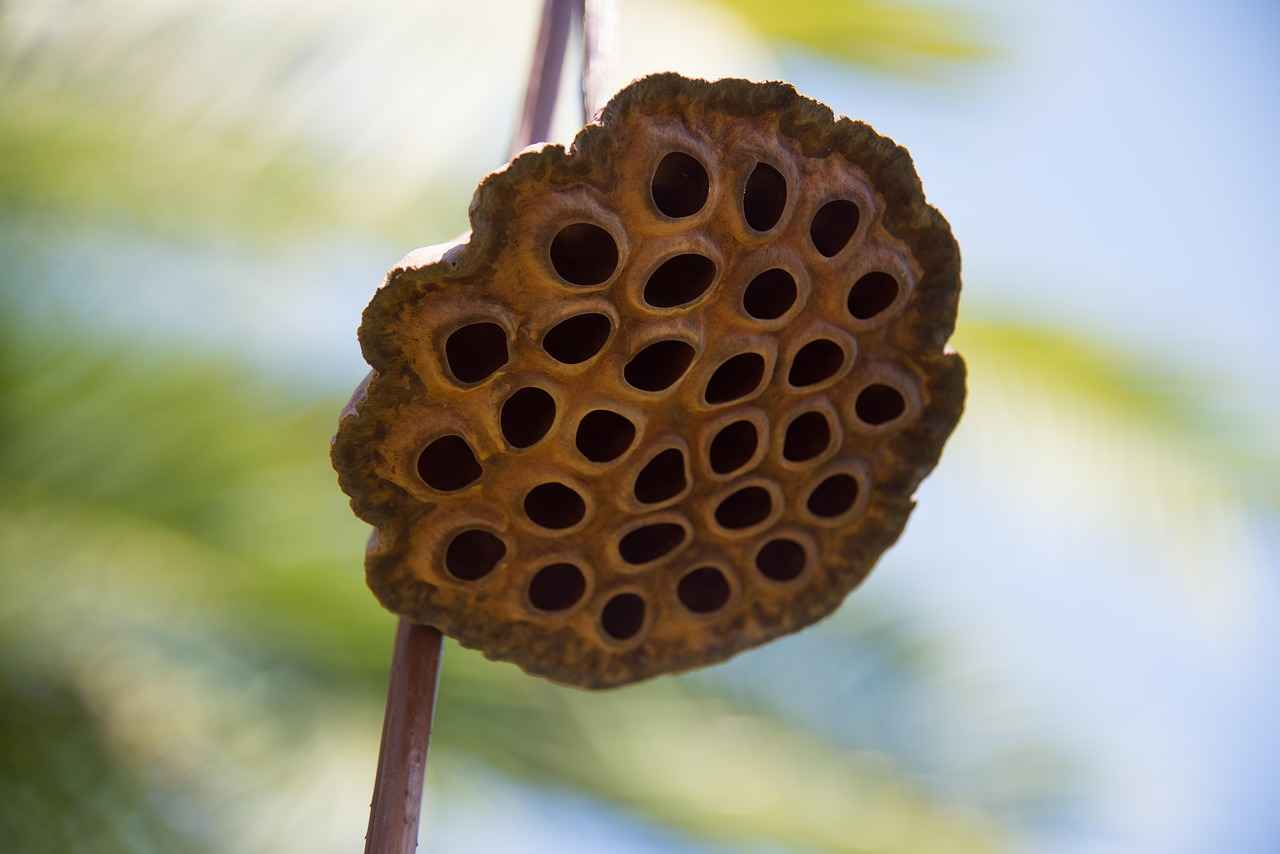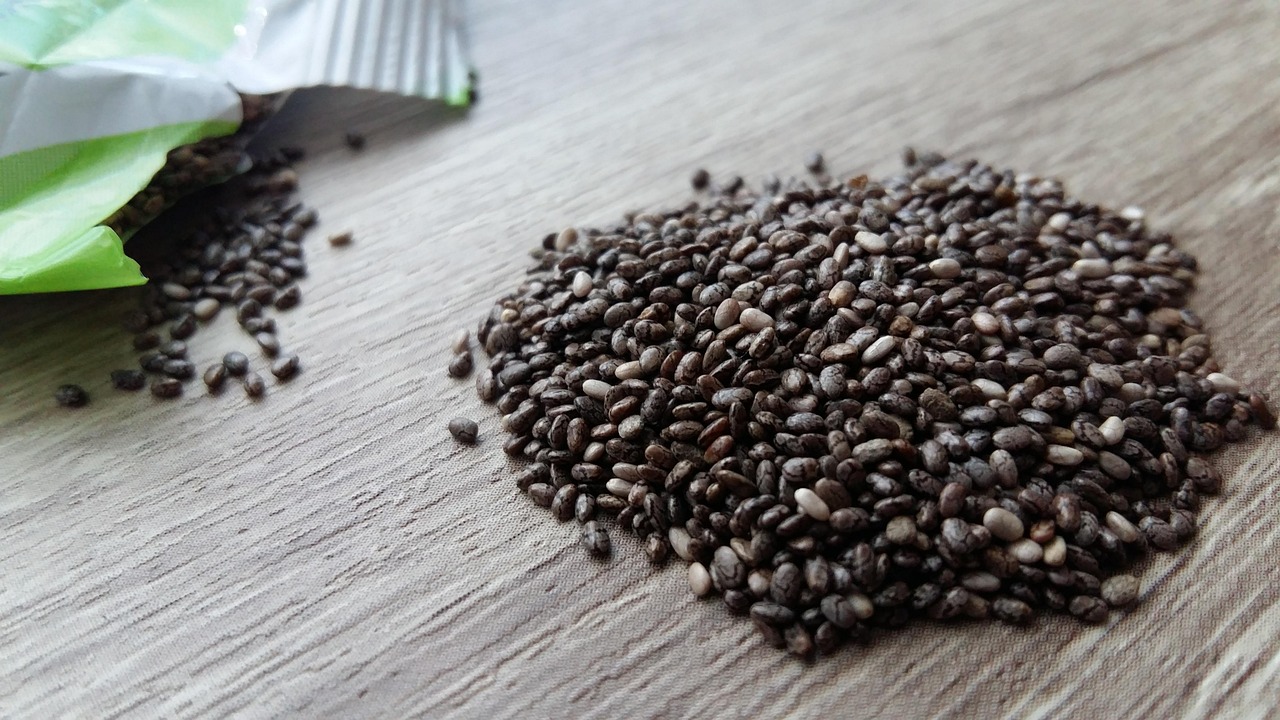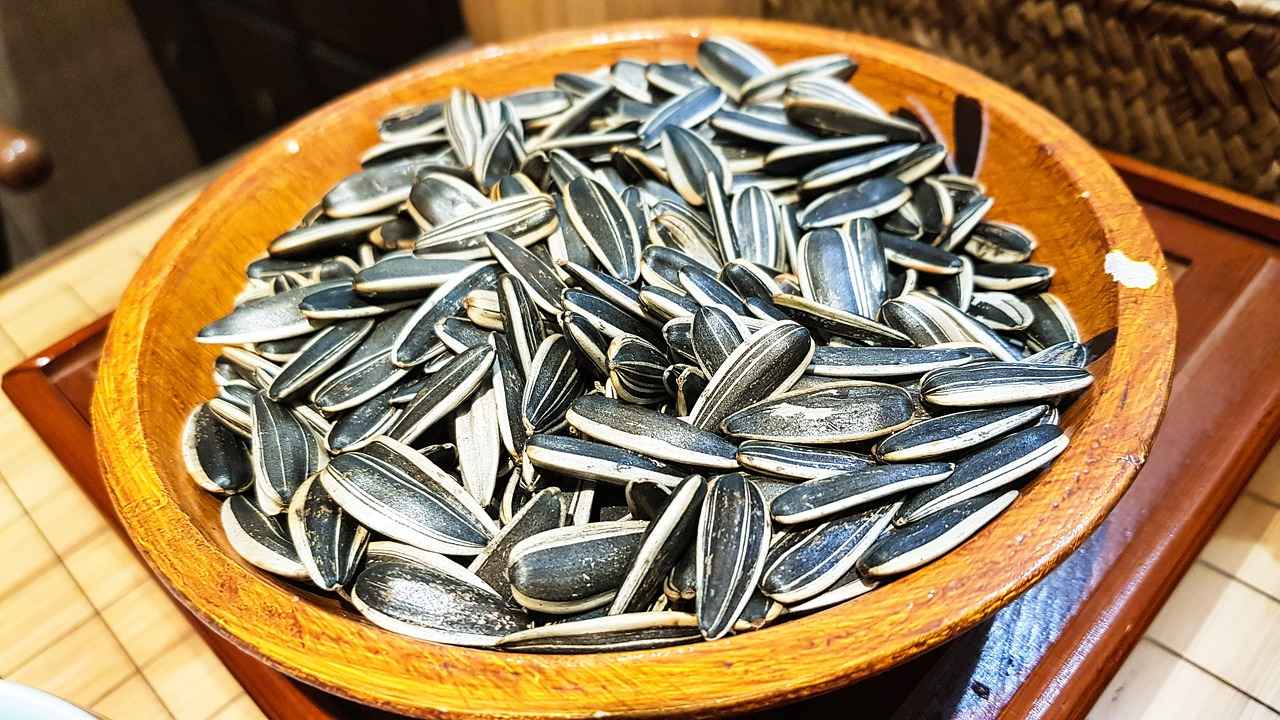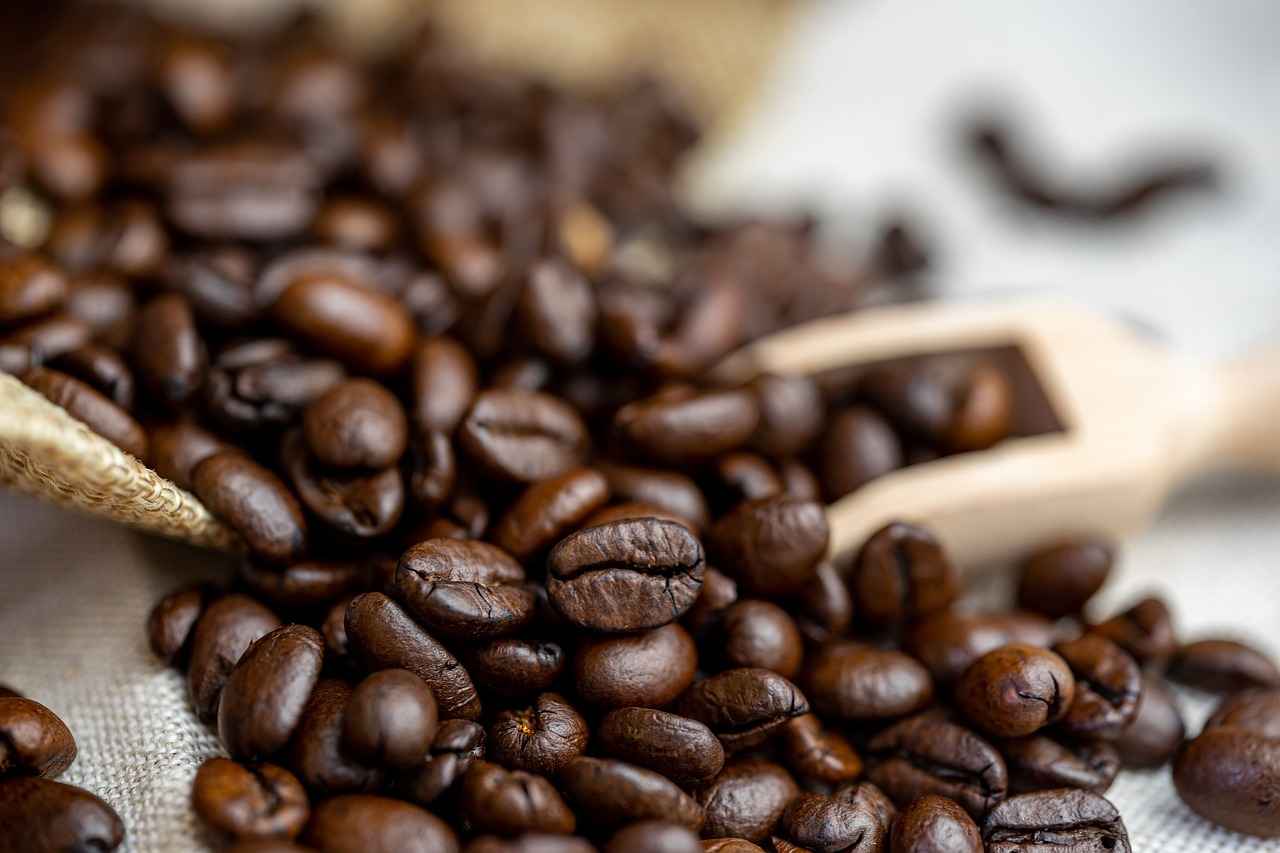Chia seeds have gained immense popularity in recent years, recognized not just for their unique texture but also for their outstanding nutritional profile. This article delves into the myriad health benefits of chia seeds, shedding light on their essential nutrients, how they can improve digestion, support heart health, and much more.
Chia seeds are a powerhouse of nutrition. They are particularly rich in:
- Omega-3 fatty acids: Essential for heart health.
- Fiber: Promotes digestive health and aids in weight management.
- Protein: Supports muscle repair and overall health.
- Vitamins and minerals: Including calcium, magnesium, and phosphorus.
Understanding these nutrients is vital to appreciate how chia seeds can enhance your overall well-being.
The high fiber content in chia seeds, approximately 10 grams per ounce, plays a crucial role in promoting healthy digestion. When consumed, chia seeds absorb water and expand, forming a gel-like substance that aids in bowel regularity and prevents constipation. This gel-like property can also help you feel full longer, which can be beneficial for weight management.
Fiber acts as a prebiotic, fostering the growth of beneficial gut bacteria. A healthy gut microbiome is essential for digestion, immunity, and even mental health. Regular intake of chia seeds can significantly enhance gut health, making them a smart addition to your diet.
Research indicates that regular consumption of chia seeds may help reduce the risk of digestive disorders such as irritable bowel syndrome (IBS). Their ability to regulate bowel movements and improve gut health makes them a valuable dietary component for those prone to digestive issues.
Due to their high fiber and protein content, chia seeds can be effective in promoting satiety. This means that incorporating them into your meals can help control hunger and reduce overall calorie intake, making them a valuable ally in weight loss efforts.
Chia seeds are rich in antioxidants, which combat oxidative stress and inflammation. Antioxidants play a crucial role in neutralizing free radicals, potentially lowering the risk of chronic diseases such as cancer and heart disease.
The omega-3 fatty acids found in chia seeds are known to reduce inflammation and lower cholesterol levels, contributing to improved cardiovascular health. Regular consumption can help maintain healthy blood pressure and reduce the risk of heart disease.
Chia seeds are an excellent source of calcium, magnesium, and phosphorus, all vital for maintaining strong bones. Incorporating chia seeds into your diet can support bone density and overall skeletal health.
For optimal health benefits, it is recommended to consume about 1 to 2 tablespoons of chia seeds daily. This amount can easily be integrated into various meals, enhancing both nutrition and flavor.
There are countless ways to add chia seeds to your meals:
- Add them to smoothies for a nutritional boost.
- Sprinkle them on yogurt or salads.
- Use them in baked goods like muffins and bread.
With their versatility and health benefits, chia seeds are an excellent addition to a balanced diet.
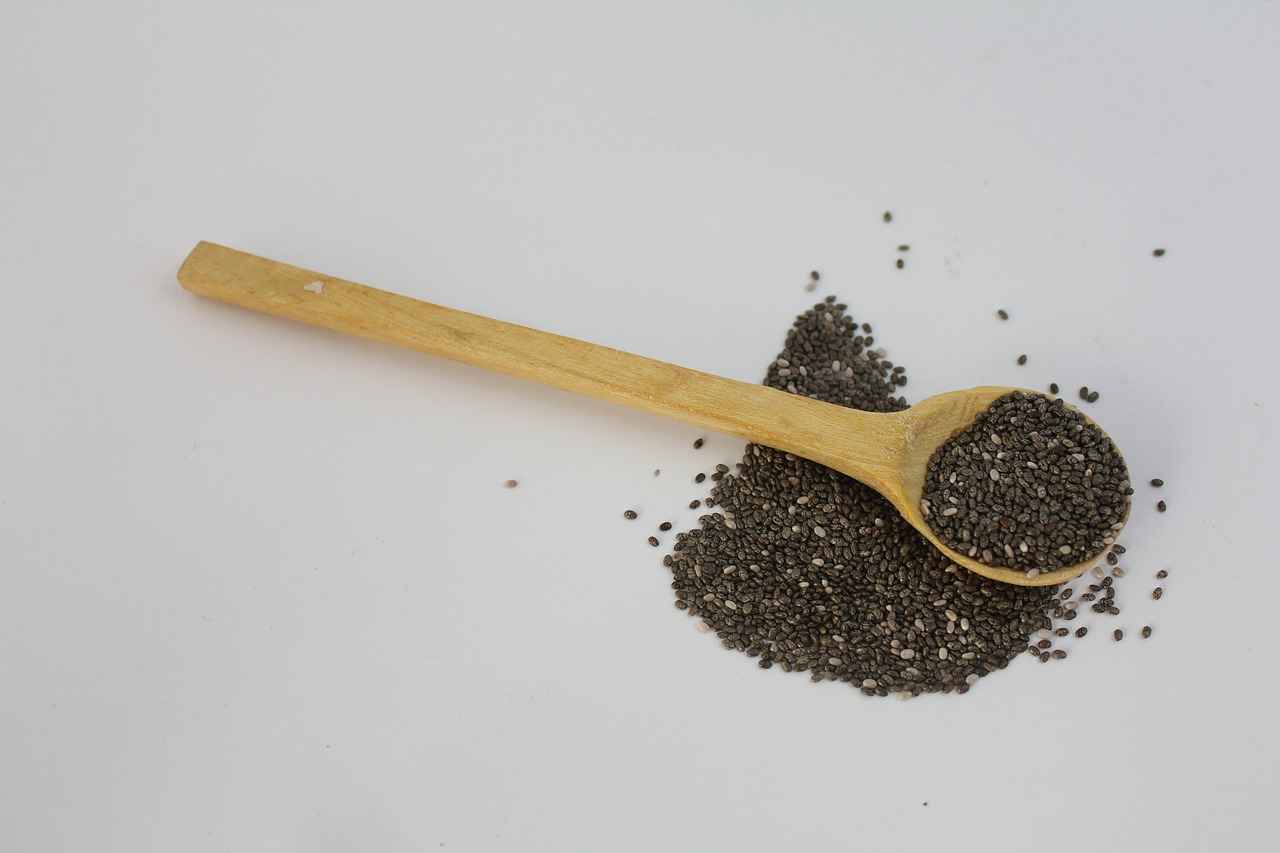
What Nutrients Are Found in Chia Seeds?
Chia seeds, derived from the Salvia hispanica plant, have gained immense popularity due to their remarkable health benefits. These tiny seeds are not only versatile in culinary uses but are also nutrient-dense, making them a powerful addition to any diet. Understanding what nutrients are found in chia seeds is essential for anyone looking to enhance their health.
Chia seeds are a rich source of several essential nutrients, including:
- Omega-3 Fatty Acids: Chia seeds are one of the best plant-based sources of omega-3 fatty acids, particularly alpha-linolenic acid (ALA). These healthy fats are crucial for heart health and may help reduce inflammation.
- Dietary Fiber: With approximately 10 grams of fiber per ounce, chia seeds are an excellent source of soluble fiber. This type of fiber absorbs water and forms a gel-like substance in the gut, aiding in digestion and promoting a feeling of fullness.
- Protein: Chia seeds contain about 4 grams of protein per ounce, making them a great plant-based protein source. This protein is essential for muscle repair and growth, as well as overall body function.
- Vitamins and Minerals: Chia seeds are loaded with vital nutrients such as calcium, magnesium, phosphorus, and manganese. These minerals play important roles in bone health, metabolism, and energy production.
- Antioxidants: Chia seeds are rich in antioxidants, which help combat oxidative stress and reduce inflammation. These compounds play a significant role in maintaining overall health and preventing chronic diseases.
Understanding the nutritional content of chia seeds is crucial for appreciating their health benefits. The combination of omega-3 fatty acids, fiber, and protein can contribute to improved heart health, better digestion, and enhanced weight management. Additionally, the presence of vitamins and minerals supports bone health and overall well-being.
For those looking to boost their nutrient intake, chia seeds can easily be incorporated into a variety of meals. They can be added to smoothies, oatmeal, yogurt, or even baked goods for added nutrition. When soaked in liquid, chia seeds expand and create a gel-like consistency, making them an excellent thickening agent for puddings and sauces.
In summary, chia seeds are a powerhouse of essential nutrients, providing numerous health benefits. Their rich profile of omega-3 fatty acids, fiber, protein, vitamins, and minerals makes them a valuable addition to any diet. By understanding their nutritional content, individuals can make informed choices to enhance their overall health.
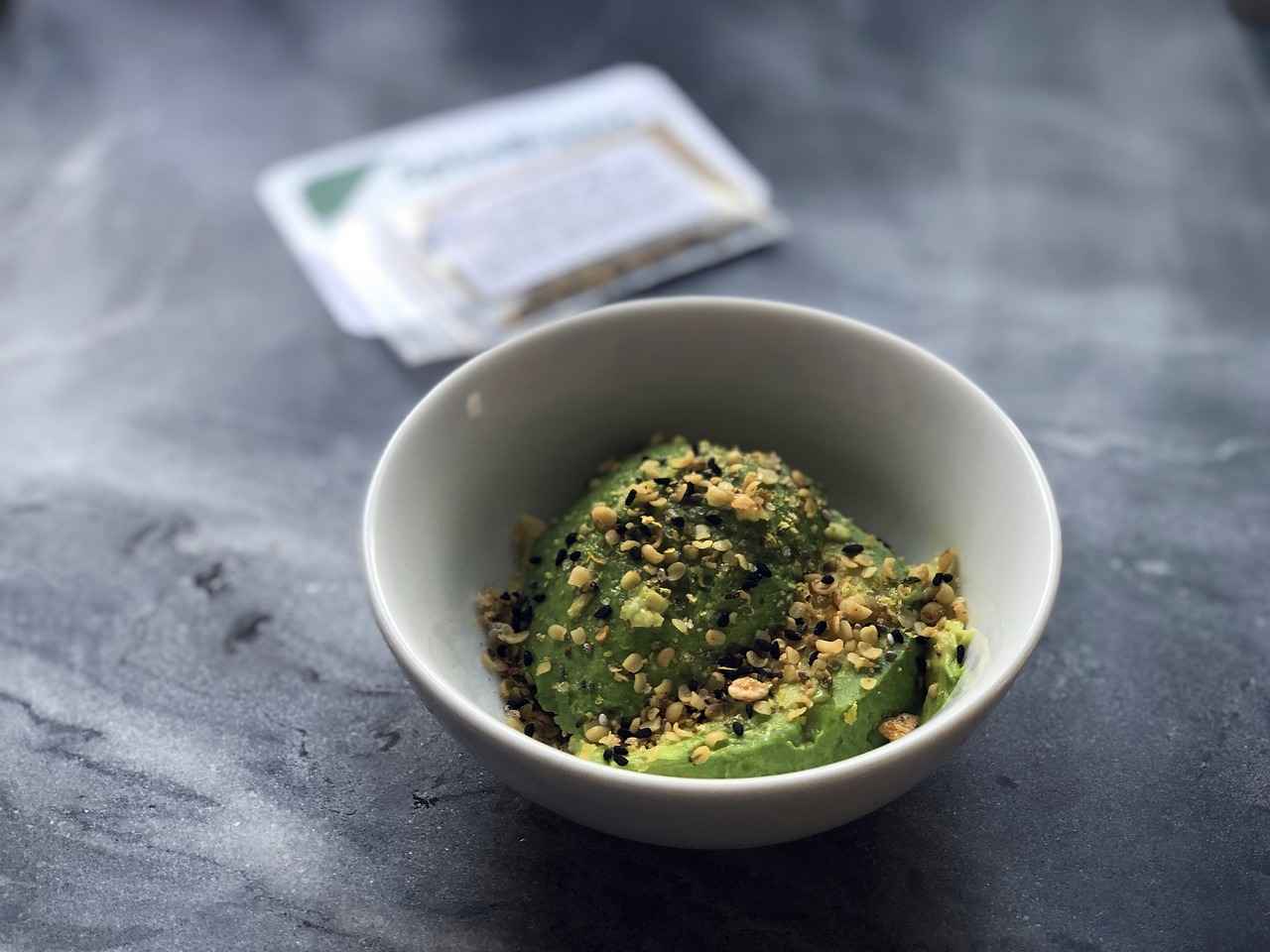
How Do Chia Seeds Aid in Digestion?
Chia seeds have gained popularity in recent years, not just for their versatility in recipes but also for their impressive health benefits. One of the most significant advantages of chia seeds lies in their ability to support digestive health. This section delves into how chia seeds aid in digestion, exploring the mechanisms behind their benefits and offering practical tips for incorporating them into your diet.
The high fiber content in chia seeds plays a crucial role in promoting healthy digestion. With approximately 10 grams of fiber per ounce, chia seeds are an excellent source for those looking to enhance their digestive health. But how exactly do these tiny seeds contribute to better digestion?
- Enhanced Bowel Regularity: The soluble fiber in chia seeds absorbs water, forming a gel-like substance that helps to bulk up stool and facilitate its passage through the digestive tract. This process can significantly reduce the risk of constipation.
- Prebiotic Properties: Chia seeds act as a prebiotic, providing nourishment for beneficial gut bacteria. A healthy balance of gut flora is essential for optimal digestion and overall health.
- Slowed Digestion: The gel formed by chia seeds can slow down digestion, leading to a gradual release of nutrients. This not only aids in nutrient absorption but also helps maintain stable blood sugar levels.
Incorporating chia seeds into your diet can be simple and enjoyable. Here are some practical tips:
- Add to Smoothies: Blend chia seeds into your morning smoothie for an added fiber boost.
- Use as a Thickening Agent: Incorporate chia seeds into soups or stews to enhance texture and nutritional content.
- Baking: Substitute a portion of flour in baked goods with ground chia seeds or add whole seeds to enhance the fiber content.
Understanding the role of fiber in gut health is essential for appreciating the benefits of chia seeds. Fiber is not only vital for regular bowel movements but also supports the growth of beneficial bacteria in the gut. This is particularly important as a healthy gut microbiome is linked to improved digestion and a strengthened immune system.
Research suggests that diets rich in fiber can reduce the risk of digestive disorders, including irritable bowel syndrome (IBS). Regularly consuming chia seeds may help mitigate symptoms associated with these conditions, promoting a healthier gut environment.
With about 10 grams of fiber per ounce, chia seeds stand out as a significant source of dietary fiber. Experts recommend aiming for at least 25 grams of fiber per day for women and 38 grams for men. Incorporating chia seeds into your meals can help you meet these daily fiber goals.
Emerging research indicates that the regular consumption of chia seeds may help lower the risk of digestive disorders. By promoting regular bowel movements and fostering a healthy gut microbiome, chia seeds can be a proactive choice for those concerned about digestive health.
In summary, chia seeds are a powerhouse of fiber that can enhance digestion, support gut health, and potentially prevent digestive disorders. By integrating chia seeds into your daily diet, you can take a significant step toward improving your overall digestive wellness.
What Role Does Fiber Play in Gut Health?
Fiber is an essential component of a healthy diet, particularly when it comes to gut health. Among various sources of fiber, chia seeds stand out due to their unique properties and health benefits. These tiny seeds are not just a trendy superfood; they are a powerhouse of nutrients that can significantly impact your digestive system.
When we consume fiber, it acts as a prebiotic, which means it serves as food for the beneficial bacteria in our gut. This is crucial because a healthy gut microbiome is linked to improved digestion, enhanced immune function, and better overall health. The fiber found in chia seeds helps to foster the growth of these good bacteria, promoting a balanced gut environment.
Chia seeds are particularly rich in soluble fiber, which absorbs water and forms a gel-like substance in the digestive tract. This property not only aids in slowing digestion, which can help you feel fuller for longer, but it also assists in regulating blood sugar levels. By moderating the rate at which food leaves the stomach, soluble fiber can help prevent spikes in blood sugar, making chia seeds an excellent choice for those managing diabetes or looking to maintain stable energy levels throughout the day.
In addition to their prebiotic benefits, the fiber in chia seeds plays a vital role in promoting regular bowel movements. By adding bulk to the stool, fiber helps to facilitate its passage through the digestive system, reducing the risk of constipation. Regular consumption of chia seeds may help alleviate symptoms of digestive disorders such as irritable bowel syndrome (IBS) and diverticulitis, as the fiber aids in maintaining a healthy gut lining.
Incorporating chia seeds into your diet is simple and versatile. They can be added to smoothies, oatmeal, yogurt, or even baked goods. For those looking to increase their fiber intake, just one ounce (about 28 grams) of chia seeds contains approximately 10 grams of fiber, making them an excellent addition to any meal.
Moreover, the benefits of fiber extend beyond gut health. It has been shown to lower cholesterol levels, aid in weight management, and reduce the risk of chronic diseases such as heart disease and diabetes. By including chia seeds in your daily diet, you are not only supporting your digestive health but also contributing to your overall wellness.
In conclusion, the role of fiber from chia seeds in gut health cannot be overstated. By acting as a prebiotic, promoting regularity, and supporting the growth of beneficial bacteria, chia seeds can be a valuable addition to a healthy diet. Their high fiber content, coupled with other essential nutrients, makes them an ideal choice for anyone looking to enhance their digestive health and overall well-being.
How Much Fiber Is in Chia Seeds?
Chia seeds have gained popularity in recent years, not just for their unique texture but also for their impressive nutritional profile. One of the most notable attributes of chia seeds is their high fiber content. With approximately 10 grams of fiber per ounce, these tiny seeds serve as an excellent source for individuals aiming to enhance their fiber intake. This section will delve into the significance of fiber, its benefits for digestion, and practical tips for incorporating chia seeds into your meals.
Fiber plays a crucial role in maintaining overall health. It aids in digestion, helps regulate blood sugar levels, and can even contribute to weight management. There are two types of fiber: soluble and insoluble. Chia seeds contain both, making them a versatile addition to your diet. Soluble fiber helps to slow digestion and can improve cholesterol levels, while insoluble fiber adds bulk to stool, promoting regular bowel movements.
Incorporating chia seeds into your meals is both easy and delicious. Here are some practical tips:
- Add to Smoothies: Blend chia seeds into your favorite smoothie for an extra nutritional boost.
- Make Chia Pudding: Combine chia seeds with your choice of milk and let them sit overnight to create a creamy pudding.
- Sprinkle on Salads: Use chia seeds as a topping for salads to enhance texture and nutrition.
- Mix into Baked Goods: Add chia seeds to muffins, breads, or pancakes for added fiber and nutrients.
The high fiber content in chia seeds promotes healthy digestion. When consumed, chia seeds absorb water and expand, forming a gel-like substance that aids in moving food through the digestive tract. This process can help prevent constipation and promote regularity. Additionally, the prebiotic properties of fiber in chia seeds support the growth of beneficial gut bacteria, which is essential for maintaining a healthy gut microbiome.
Chia seeds can be a helpful ally in weight management due to their high fiber and protein content. Both nutrients contribute to feelings of fullness and satiety, which can reduce overall calorie intake. By including chia seeds in meals, individuals may find it easier to control their appetite and make healthier food choices.
To reap the health benefits of chia seeds, a daily intake of 1 to 2 ounces is generally recommended. This amount provides sufficient fiber while also delivering essential nutrients without excessive calorie intake. It’s important to drink plenty of water when consuming chia seeds, as their high fiber content can absorb liquid and expand, potentially leading to digestive discomfort if not properly hydrated.
In summary, chia seeds are an excellent source of dietary fiber, offering numerous health benefits. By incorporating them into various meals and snacks, you can easily boost your fiber intake and support your overall health. Whether you choose to add them to smoothies, salads, or baked goods, the versatility of chia seeds makes them a simple yet powerful addition to your diet.
Can Chia Seeds Help Prevent Digestive Disorders?
The consumption of chia seeds has gained popularity not only for their nutritional benefits but also for their potential role in promoting digestive health. Regular intake of these tiny seeds may contribute to reducing the risk of various digestive disorders, particularly irritable bowel syndrome (IBS). This article delves into the research findings surrounding chia seeds and their impact on digestive health.
What Makes Chia Seeds Effective for Digestion?
Chia seeds are a powerhouse of dietary fiber, containing around 10 grams per ounce. This high fiber content plays a crucial role in maintaining digestive health. Fiber is known to enhance bowel regularity, which is essential for preventing constipation and promoting a healthy gut. When chia seeds are consumed, they absorb water and expand, forming a gel-like substance that helps to bulk up stool and facilitate its passage through the digestive tract.
How Do Chia Seeds Affect Gut Bacteria?
In addition to their fiber content, chia seeds act as a prebiotic. This means they provide nourishment for beneficial gut bacteria, which are essential for maintaining a balanced microbiome. A healthy gut microbiome is linked to improved digestion and a lower risk of gastrointestinal disorders. Research indicates that a diverse gut microbiota can help mitigate symptoms associated with IBS, such as bloating, gas, and abdominal pain.
Research Findings on Chia Seeds and Digestive Health
Numerous studies suggest that incorporating chia seeds into the diet can have positive effects on digestive health. For instance, a study published in the journal Nutrition Research found that participants who included chia seeds in their diets experienced significant improvements in bowel regularity and a reduction in IBS symptoms. These findings highlight the potential of chia seeds as a natural remedy for those suffering from digestive issues.
How to Incorporate Chia Seeds into Your Diet
- Smoothies: Add a tablespoon of chia seeds to your morning smoothie for an extra fiber boost.
- Chia Pudding: Mix chia seeds with your choice of milk or yogurt and let it sit overnight for a nutritious pudding.
- Baked Goods: Incorporate chia seeds into muffins, bread, or pancakes for added texture and health benefits.
- Salads: Sprinkle chia seeds on top of salads for a crunchy addition.
Recommended Intake
To enjoy the digestive benefits of chia seeds, it is generally recommended to consume about 1-2 tablespoons daily. However, it is essential to increase your intake gradually and ensure adequate hydration, as the seeds absorb a significant amount of water.
In summary, the regular consumption of chia seeds may help prevent digestive disorders like IBS through their high fiber content and prebiotic properties. By supporting bowel regularity and promoting a healthy gut microbiome, chia seeds can be a valuable addition to your diet. Consider incorporating them into various meals to reap the full benefits for your digestive health.
Are Chia Seeds Beneficial for Weight Management?
Chia seeds have gained popularity as a superfood, particularly among those looking to manage their weight effectively. With their impressive nutritional profile, these tiny seeds are often touted for their ability to promote feelings of fullness and reduce overall calorie intake.
One of the primary reasons that chia seeds can aid in weight management is their high fiber content. Each ounce of chia seeds contains about 10 grams of fiber, which is essential for maintaining digestive health. This fiber absorbs water and expands in the stomach, creating a sense of fullness that can help curb hunger pangs. By including chia seeds in your meals, you may find it easier to resist the temptation for unhealthy snacks between meals.
In addition to fiber, chia seeds are also a good source of protein. Protein is known to play a crucial role in weight management by increasing satiety and reducing appetite. When you consume protein-rich foods, your body releases hormones that signal fullness, helping you to eat less overall. By adding chia seeds to smoothies, yogurt, or salads, you can boost your protein intake while enjoying their numerous health benefits.
How Can Chia Seeds Be Incorporated into Your Diet for Weight Loss?
- Smoothies: Blend chia seeds into your favorite smoothies for an added nutritional boost.
- Yogurt: Stir chia seeds into yogurt for a satisfying snack or breakfast.
- Baking: Add chia seeds to baked goods like muffins or bread for extra fiber and protein.
- Salads: Sprinkle chia seeds on salads for a crunchy texture and nutritional enhancement.
Research suggests that incorporating chia seeds into a balanced diet can lead to weight loss over time. A study published in the Journal of Nutrition found that participants who included chia seeds in their diet reported increased feelings of fullness and a decrease in overall calorie consumption. This indicates that chia seeds can be a valuable tool for those looking to manage their weight effectively.
Are There Any Considerations When Using Chia Seeds for Weight Management?
While chia seeds offer numerous benefits, it’s essential to consume them in moderation. Due to their high fiber content, excessive intake can lead to gastrointestinal discomfort, such as bloating or gas. It’s advisable to start with a small amount and gradually increase your intake to allow your digestive system to adjust.
Additionally, while chia seeds can be beneficial, they should not be seen as a magic solution for weight loss. A comprehensive approach that includes a balanced diet and regular physical activity is crucial for effective weight management. Chia seeds can complement this approach, providing essential nutrients that support overall health.
In summary, chia seeds can indeed be beneficial for weight management due to their high fiber and protein content, which promote satiety. By incorporating them into your daily diet, you can enjoy their health benefits while working towards your weight loss goals. Remember to combine chia seeds with a variety of other healthy foods for the best results.
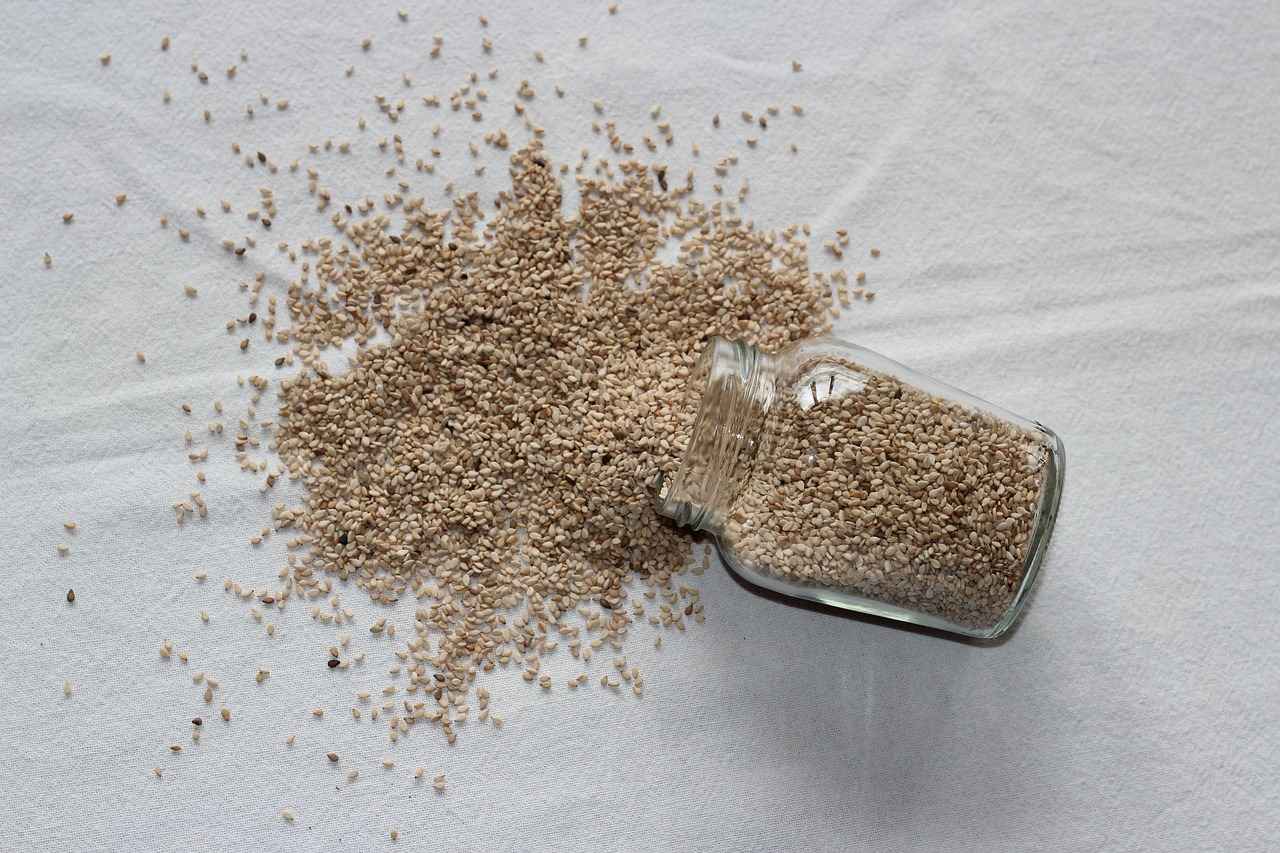
What Are the Antioxidant Properties of Chia Seeds?
Chia seeds have garnered significant attention in the health and wellness community, particularly due to their impressive antioxidant properties. These tiny seeds are not only a source of essential nutrients but also play a vital role in combating oxidative stress and inflammation within the body. Understanding the importance of antioxidants can help individuals make informed dietary choices that promote long-term health.
Antioxidants are compounds that neutralize free radicals—unstable molecules that can cause cellular damage and contribute to chronic diseases. By reducing oxidative stress, antioxidants help protect the body from conditions such as heart disease, cancer, and diabetes. The presence of antioxidants in chia seeds makes them a valuable addition to a balanced diet.
Chia seeds are rich in various antioxidants, including quercetin, kaempferol, and chlorogenic acid. These compounds work synergistically to scavenge free radicals and reduce inflammation. When consumed regularly, chia seeds can help lower the risk of oxidative damage, which is crucial for maintaining overall health.
- Reduction of Inflammation: Chronic inflammation is linked to numerous health issues. The antioxidants in chia seeds can help mitigate inflammatory responses, promoting better health.
- Heart Health: Antioxidants contribute to heart health by improving blood circulation and reducing cholesterol levels, which can lower the risk of cardiovascular diseases.
- Support for Brain Health: Antioxidants may also play a role in cognitive function by protecting brain cells from oxidative stress, potentially lowering the risk of neurodegenerative diseases.
To fully benefit from the antioxidant properties of chia seeds, it is essential to incorporate them into your daily diet. Here are some practical tips:
1. Add chia seeds to smoothies for a nutrient boost.2. Mix them into yogurt or oatmeal for added texture and health benefits.3. Use chia seeds as an egg substitute in baking, enhancing both nutrition and moisture.4. Sprinkle them on salads or soups for a crunchy topping.
While chia seeds are generally safe for most individuals, excessive consumption can lead to digestive issues due to their high fiber content. It is advisable to start with a small amount and gradually increase your intake, ensuring adequate hydration.
In summary, the antioxidant properties of chia seeds make them a powerful ally in the fight against oxidative stress and inflammation. By incorporating these seeds into your diet, you can enjoy their numerous health benefits while contributing to your overall well-being.
How Do Antioxidants Benefit Overall Health?
Antioxidants are vital compounds that play a significant role in maintaining our health by combating oxidative stress and reducing inflammation in the body. They achieve this by neutralizing free radicals, which are unstable molecules that can cause cellular damage. This section will explore the numerous health benefits of antioxidants, particularly those found in chia seeds.
What Are Free Radicals?
Free radicals are generated through various processes, including normal metabolic functions, exposure to environmental pollutants, and UV radiation. When their levels become excessive, they can lead to oxidative stress, which has been linked to various chronic diseases, including cancer and heart disease.
How Do Antioxidants Work?
Antioxidants neutralize free radicals by donating an electron, thus stabilizing these harmful molecules. This process not only prevents cellular damage but also supports overall health. The antioxidants in chia seeds, such as quercetin, chlorogenic acid, and caffeic acid, contribute significantly to their health-promoting properties.
Health Benefits of Antioxidants in Chia Seeds
- Reduced Inflammation: Chronic inflammation is linked to numerous health issues, including autoimmune diseases and heart conditions. The antioxidants in chia seeds help reduce inflammation, promoting better health.
- Lower Risk of Chronic Diseases: Regular consumption of antioxidants can lower the risk of developing chronic diseases. Studies suggest that diets rich in antioxidants may reduce the incidence of cancer and cardiovascular diseases.
- Enhanced Immune Function: Antioxidants bolster the immune system by protecting immune cells from oxidative damage, enhancing the body’s ability to fight off infections.
- Skin Health: Antioxidants can also benefit skin health by reducing signs of aging, protecting against UV damage, and promoting a healthier complexion.
How Can You Maximize Antioxidant Intake from Chia Seeds?
To harness the full potential of antioxidants in chia seeds, incorporate them into your daily diet. Here are some practical tips:
- Add chia seeds to smoothies for a nutritious boost.
- Use them as a topping for yogurt or oatmeal.
- Incorporate chia seeds into baked goods, such as muffins or bread, for added texture and nutrition.
Final Thoughts
Incorporating chia seeds into your diet can significantly enhance your antioxidant intake, contributing to overall health and well-being. By reducing oxidative stress and inflammation, antioxidants found in chia seeds may help lower the risk of chronic diseases and promote a healthier lifestyle. As part of a balanced diet, chia seeds offer a simple yet effective way to boost your antioxidant levels and support your health.
Can Chia Seeds Support Heart Health?
Chia seeds, known for their tiny size and impressive nutrient profile, have garnered attention for their potential health benefits, particularly regarding heart health. This section delves into how these seeds can play a significant role in promoting cardiovascular wellness.
Chia seeds are an excellent source of omega-3 fatty acids, which are essential fats that the body cannot produce on its own. These fatty acids are primarily found in fish, but chia seeds provide a plant-based alternative, making them a valuable addition to vegetarian and vegan diets. Omega-3s are known for their ability to reduce inflammation in the body, which is a critical factor in maintaining heart health.
Chronic inflammation is linked to various cardiovascular diseases. The omega-3 fatty acids in chia seeds help combat this inflammation by suppressing the production of inflammatory markers. Studies have shown that regular consumption of omega-3s can lead to lower levels of C-reactive protein (CRP), a marker associated with inflammation and heart disease. By incorporating chia seeds into your diet, you may support your body’s ability to manage inflammation effectively.
Another significant benefit of chia seeds is their potential to lower cholesterol levels. Research indicates that the soluble fiber in chia seeds can help reduce levels of LDL (bad) cholesterol while increasing HDL (good) cholesterol. This balance is essential for maintaining a healthy heart and reducing the risk of heart disease. The fiber forms a gel-like substance in the digestive tract, which binds to cholesterol and helps eliminate it from the body.
In addition to lowering cholesterol, chia seeds may also contribute to healthy blood pressure levels. The high content of omega-3 fatty acids, along with minerals like magnesium and potassium found in chia seeds, can help relax blood vessels, improving blood flow and reducing blood pressure. Maintaining optimal blood pressure is vital for overall cardiovascular health.
- Add to Smoothies: Blend chia seeds into your favorite smoothie for a nutrient boost.
- Use in Baking: Incorporate chia seeds into muffins, bread, or other baked goods.
- Make Chia Pudding: Soak chia seeds in almond milk or yogurt overnight to create a delicious pudding.
- Sprinkle on Salads: Add a tablespoon of chia seeds to salads for added crunch and nutrition.
To reap the heart health benefits of chia seeds, a daily intake of one to two tablespoons is generally recommended. This amount provides a sufficient dose of omega-3 fatty acids and fiber without overwhelming your diet. It’s essential to drink plenty of water when consuming chia seeds, as they expand in liquid and can help with hydration and digestive health.
In conclusion, chia seeds are a powerhouse of nutrients that can significantly support heart health. Their rich content of omega-3 fatty acids, fiber, and essential minerals makes them an excellent choice for anyone looking to improve their cardiovascular wellness. By understanding how to incorporate them into your daily diet, you can take proactive steps towards a healthier heart.

How Can Chia Seeds Improve Bone Health?
Chia seeds have gained significant attention in the health and wellness community due to their impressive nutritional profile. Among their many benefits, one of the most noteworthy is their potential to enhance bone health. This section delves into the essential nutrients found in chia seeds and how they contribute to maintaining strong and healthy bones.
Chia seeds are a rich source of several minerals vital for bone health, including calcium, magnesium, and phosphorus. These nutrients play a crucial role in the development and maintenance of bone density. Let’s explore how each of these components contributes to bone strength:
- Calcium: This mineral is fundamental for bone formation and strength. Approximately 18% of the daily recommended intake of calcium can be found in just one ounce of chia seeds. Regular consumption can help prevent conditions like osteoporosis.
- Magnesium: Essential for converting vitamin D into its active form, magnesium helps regulate calcium levels in the body. Chia seeds provide around 30% of the daily magnesium requirement, supporting overall bone health.
- Phosphorus: Working in tandem with calcium, phosphorus is crucial for the formation of bones and teeth. Chia seeds are an excellent source of phosphorus, which aids in maintaining bone density and structure.
Incorporating chia seeds into your diet can be a simple yet effective way to boost your intake of these important minerals. Here are some practical tips:
- Add chia seeds to your morning smoothie for an extra nutrient boost.
- Sprinkle them on salads or yogurt for added texture and nutrition.
- Use chia seeds in baking recipes, such as muffins or bread, to enhance their nutritional profile.
Moreover, chia seeds are not only beneficial for bone health but also offer several other advantages that support overall wellness. Their high content of omega-3 fatty acids contributes to reducing inflammation, which can further protect against bone-related diseases. Additionally, the fiber in chia seeds promotes digestive health, ensuring that your body effectively absorbs the nutrients essential for bone strength.
Research indicates that diets rich in these minerals can lead to improved bone density and a lower risk of fractures. Incorporating chia seeds into your daily meals can be a proactive step towards maintaining strong bones, especially for those at risk of osteoporosis or other bone-related conditions.
In conclusion, chia seeds are a powerhouse of nutrients that are not only beneficial for bone health but also contribute to overall well-being. By adding these tiny seeds to your diet, you can take a significant step towards enhancing your bone density and promoting long-term health.
What Is the Recommended Daily Intake of Chia Seeds?
Chia seeds have gained immense popularity in recent years due to their numerous health benefits. However, to truly maximize these advantages, it is essential to understand the recommended daily intake of chia seeds. This section provides clear guidelines on how much chia seeds you should consume to ensure optimal health outcomes.
Consuming chia seeds can lead to a variety of health benefits, including improved digestion, enhanced heart health, and better weight management. However, overconsumption can lead to digestive issues such as bloating or gas due to their high fiber content. Therefore, knowing the right amount to consume is crucial for reaping the benefits without adverse effects.
Experts recommend a daily intake of about 1 to 2 tablespoons of chia seeds, which is approximately 15 to 30 grams. This amount provides a sufficient dose of nutrients such as omega-3 fatty acids, fiber, and protein, while minimizing the risk of digestive discomfort.
- 1 tablespoon of chia seeds contains about 60 calories, 2 grams of protein, 5 grams of fiber, and 3 grams of omega-3 fatty acids.
- For those new to chia seeds, starting with 1 teaspoon and gradually increasing to 1 tablespoon can help your digestive system adjust.
There are numerous ways to include chia seeds in your daily meals:
- Add them to your morning smoothie for a nutritious boost.
- Sprinkle them on salads for added crunch and nutrients.
- Mix them into yogurt or oatmeal for a satisfying breakfast.
- Use them in baking recipes, such as muffins or bread, to enhance nutritional value.
While chia seeds are generally safe for most people, consuming more than the recommended amount can lead to gastrointestinal issues. It is also important to drink plenty of water when consuming chia seeds, as they absorb liquid and can expand in the stomach.
Individuals with specific health conditions, such as irritable bowel syndrome (IBS) or those who are pregnant, should consult with a healthcare professional to determine the appropriate amount of chia seeds for their diet.
Incorporating chia seeds into your diet can significantly enhance your overall health. By adhering to the recommended daily intake of 1 to 2 tablespoons, you can enjoy the numerous benefits while minimizing any potential risks. Remember to listen to your body and adjust your intake as needed to find what works best for you.
How Can You Incorporate Chia Seeds into Your Diet?
Incorporating chia seeds into your diet can be both simple and enjoyable. These tiny seeds are versatile, allowing them to blend seamlessly into a variety of dishes. Below are some practical tips and delicious recipes to help you make the most of chia seeds in your daily meals.
Chia seeds are not just a trendy health food; they are packed with nutrients that can enhance your overall well-being. Their high fiber content promotes digestion, while omega-3 fatty acids support heart health. By adding chia seeds to your meals, you can boost the nutritional value without sacrificing taste.
- Smoothies: Add a tablespoon of chia seeds to your favorite smoothie for added texture and nutrition. They can absorb liquid and create a thicker consistency, making your smoothie more filling.
- Overnight Oats: Mix chia seeds into your overnight oats for a nutritious breakfast. Combine oats, almond milk, and chia seeds in a jar, let it sit overnight, and enjoy a quick and healthy meal in the morning.
- Baked Goods: Incorporate chia seeds into muffins, pancakes, or bread. They can replace eggs in recipes; simply mix one tablespoon of chia seeds with three tablespoons of water to create a gel-like consistency.
- Salads: Sprinkle chia seeds on top of salads for a delightful crunch. They add a nutty flavor and enhance the overall texture of your salad.
- Chia Pudding: Create a delicious chia pudding by mixing chia seeds with your choice of milk and sweetener. Let it sit for a few hours or overnight, and enjoy it as a snack or dessert.
1. Chia Seed Pudding Recipe: - 1/4 cup chia seeds - 1 cup almond milk - 1 tablespoon honey or maple syrup - Toppings: fresh fruits, nuts, or granola Instructions: - Mix chia seeds, almond milk, and sweetener in a bowl. - Stir well and refrigerate for at least 2 hours or overnight. - Top with your favorite fruits and nuts before serving.2. Chia Seed Smoothie Bowl: - 1 banana - 1/2 cup spinach - 1 tablespoon chia seeds - 1 cup almond milk - Toppings: sliced fruits, coconut flakes, and nuts Instructions: - Blend banana, spinach, chia seeds, and almond milk until smooth. - Pour into a bowl and add your desired toppings.
The recommended daily intake of chia seeds is about 1-2 tablespoons. This amount provides a good balance of nutrients without overwhelming your digestive system. Start with small portions and gradually increase as your body adjusts.
Incorporating chia seeds into your diet is easy and rewarding. With their numerous health benefits and versatility, these tiny seeds can enhance both the nutritional value and flavor of your meals. Experiment with different recipes and find the best ways to enjoy chia seeds as part of a balanced diet.
Frequently Asked Questions
- What are chia seeds good for?
Chia seeds are packed with nutrients and offer numerous health benefits, including improved digestion, heart health, and weight management. They provide a great source of omega-3 fatty acids, fiber, and antioxidants, making them a powerful addition to your diet.
- How can I incorporate chia seeds into my diet?
Incorporating chia seeds is easy! You can add them to smoothies, yogurt, oatmeal, or baked goods. They can also be used to make chia pudding by soaking them in milk or a milk alternative. Just a couple of tablespoons a day can boost your nutrient intake!
- Are there any side effects of consuming chia seeds?
While chia seeds are generally safe for most people, consuming them in excessive amounts may lead to digestive issues due to their high fiber content. It’s best to start with a small amount and gradually increase your intake, ensuring you drink plenty of water.
- How much chia seeds should I eat daily?
The recommended daily intake of chia seeds is about 1 to 2 tablespoons (15-30 grams). This amount can help you reap the health benefits without overwhelming your digestive system.
- Can chia seeds help with weight loss?
Absolutely! Chia seeds are high in fiber and protein, which can help you feel full longer. This satiety can prevent overeating and support your weight management goals.
